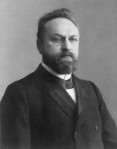The witness of the Holy Spirit has been all too one-sidedly applied, by Calvin and the later Reformed theologians, to the authority of Holy Scripture. It seemed that it had no other import than the subjective assurance that Scripture is the word of God. As a result this testimony came to stand by itself… Scripture, however, teaches very differently.
Generally speaking, the Holy Spirit was promised by Jesus as the Comforter, the Spirit of truth, who leads first the apostles, then, by their word, also all other believers, into the truth. He witnesses of Christ to them and glorifies him (John 14:17; 15:26; 16:14). To that end he convicts people of sin (John 16:8-11), regenerates them (John 3:3), and prompts them to confess Christ as Lord (1 Cor. 12:3). He further assures them of their adoption as children of God and of their heavenly inheritance (Rom. 8:14f.; 2 Cor. 1:22; 5:5; Eph. 1:13; 4:30), makes known all the things believers have received from God (1 Cor. 2:2; 1 John 2:20;; 3:24; 4:6-13), and in the church is the author of all Christian virtues and all spiritual gifts (Gal. 5:22; 1 Cor. 12:8-11). It is evident from all these passages that the testimony of the Holy Spirit is of a religious-ethical kind and intimately bound up with people’s own faith life. It does not bypass people’s faith; it is not a voice from heaven, a dream or a vision. It is a witness that the Holy Spirit communicates in, with, and through our own spirit in faith. It is not given to unbelievers but is the portion only of the children of God. Episcopius therefore raised the objection that the testimony of the Holy Spirit cannot be a ground of faith because it is something that only comes later (John 7:38; 14:17; Acts 5:32; Gal. 3:2; 4:6). But from the very beginning faith itself is the work of the Holy Spirit (1 Cor. 12:3) and receives its seal and confirmation in the Spirit of adoption. Believing itself is a witness of the Holy Spirit in our hearts and through our spirit.
~Herman Bavinck~
Reformed Dogmatics Vol. 1: Prolegomena (Grand Rapids, Michigan; Baker Academic; 2003) p. 593-594.








Bavinck is a Dutch reformed theologian. The reformed church today has benefitted from his ‘works’ being translated into English by a group associated with Joel Beeke called the Reformed Trust. On Thu 11/08/12 2:17 AM , The Old Guys comment-reply@wordpress.com sent: a:hover { color: red; } a { text-decoration: none; color: #0088cc; } a.primaryactionlink:link, a.primaryactionlink:visited { background-color: #2585B2; color: #fff; } a.primaryactionlink:hover, a.primaryactionlink:active { background-color: #11729E !important; color: #fff !important; } /* @media only screen and (max-device-width: 480px) { .post { min-width: 700px !important; } } */ Bentley posted: ” The witness of the Holy Spirit has been all too one-sidedly applied, by Calvin and the later Reformed theologians, to the authority of Holy Scripture. It seemed that it had no other import than the subjective assurance that Scripture is the word of Go”
Bavinck is a tough one for me to read, no doubt due in part to the translation. I like what he says here, though. There is a paradox when it comes to the work of the Holy Spirit in our lives, as He works even in ways and times that don’t seem to fit Calvin’s model, nor that of Arminius or Wesley. Of course, it is related to the fact that we time-locked created beings simply cannot comprehend how free will and election, foreknowledge and responsibility, can apply simultaneously. The only way out is to recognize that God provides the faith that grants us access to His grace, and nobody will able to rightly say at the Judgment that God was unfair.
That’s interesting Joe that you find Bavinck tough to read. Are you reading from the recent versions produced by Baker? I’ve actually found him easier because of the fresh translation in contrast to reading the older english of many of the puritans or Charles Spurgeon, for example.
For the most part I read what you post here, so whatever version that is applies. As I said, this particular post isn’t an issue at all, but other posts include some words with which I’m not familiar, or sentence structures that make the thought a bit more confusing. I’d have to hunt through the other Bavinck posts here to find a good example of the hard-to-read style.